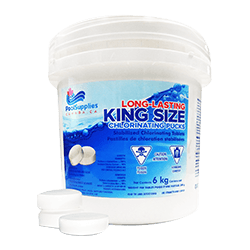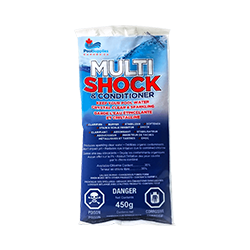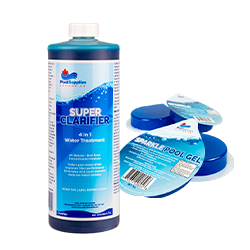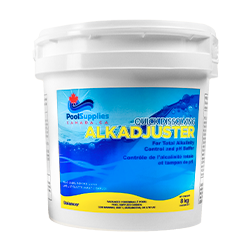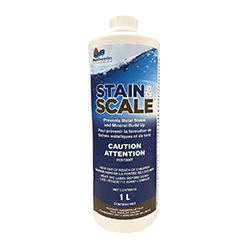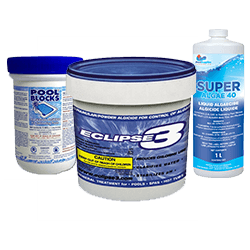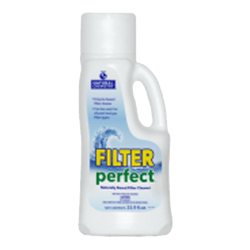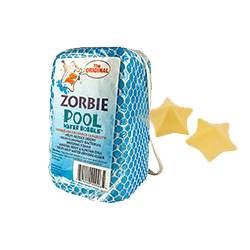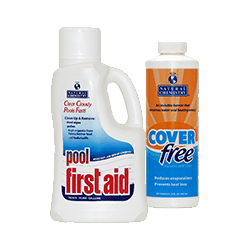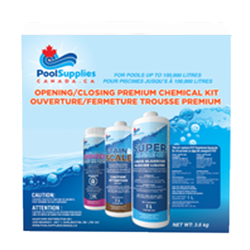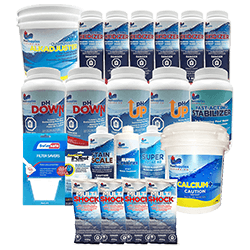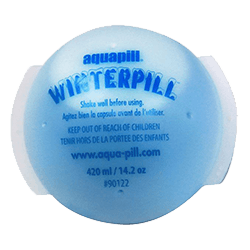Frequently Asked Pool Chemical Questions
What is pool pH?
Pool pH refers to the measure of acidity in your pool water. The pH scale is measured from 0 – 14. A pH of 7 is considered neutral. Above 7 and your pool water is basic and below 7 and your pool water is acidic.
What is the ideal pH for your pool?
The ideal pH for your pool water is 7.2- 7.8 because 7.4 most closely matches the alkalinity of your body.
How do you check the pH of your pool?
You can use chemical test strips to test your pool’s pH.
How do you adjust your pool’s pH?
To adjust your pool’s pH, first test the water and then add more chemicals accordingly. Be careful not to add too many chemicals - it’s much easier to add more than to compensate for too many. Click here for a guide to see the ideal ranges for each type of chemical in your pool.
How often should you check your pool’s pH?
You should check your pool’s pH on a weekly basis.
What is a pool oxidizer?
A pool oxidizer chemically destroys organic elements in your pool. Using an oxidizer is also called shocking your pool water, which is necessary to properly maintain your pool. Oxidizers can help you quickly restore your pool’s water clarity.
How often should you use an oxidizer?
You should use an oxidizer in your pool every couple of weeks. Add it to your pool by broadcasting it over the surface.
What is the difference between stabilized and unstabilized pool chlorine?
The main difference between stabilized and unstabilized pool chlorine is that unstabilized chlorine does not contain cyanuric acid, which stabilizes the chlorine and makes it last longer in your swimming pool. Stabilized chlorine is best for outdoor pools because the addition of cyanuric acid helps keep the sun from burning away the chlorine. On the other hand, unstabilized pool chlorine is best for indoor pools.
You can still use unstabilized chlorine to shock your outdoor pool because it doesn’t stay in your pool for long, which allows you to address any water clarity issues without worrying about too many chemicals impacting the quality of your swimming experience.
How often should you add unstabilized pool chlorine to your pool?
If your pool is being used heavily on a regular basis then you could use unstabilized chlorine daily, but you need to do so cautiously because overuse can cause damage to your vinyl pool liner.
What are chlorine tablets used for?
Chlorine is used to sanitize pool water. Chlorine is available in tablet form, and can be added to your pool in several ways, depending on your chemical dispensing system. Chlorine tablets can discolour or damage your liner if they are not properly dissolved, so be careful when adding tablets to your pool.
How often should you add chlorine to your pool?
Add chlorine to your pool as needed. Check the pH levels in your pool and add chlorine as necessary to reach the optimal pH level. Check out this guide for more information about the optimal pH levels for your pool.
What are bromine tablets used for?
Bromine is a popular chemical for hot tubs and spas. It’s available in tablet form – in either slow or quick dissolving tablets. Bromine is usually less irritating on the skin than chlorine.
How often should you add bromine to your hot tub or spa?
Add bromine to your hot tub as needed. Check the pH levels in your hot tub or spa and add bromine as required to reach the optimal pH level. Check out this guide for more information about the optimal pH levels for your hot tub or spa.
What is stain and scale?
Stain and scale helps protect your hot tub or spa from scale buildup and staining, which can damage your system. With stain and scale you can protect your hot tub or spa from the occasional overtreatment.
What chemicals should you use to prepare your pool for winter?
When it comes to preparing your pool for the winter, the most important thing is to ensure that your water chemical is balanced before you close the pool. When you balance your pool’s pH, alkalinity and calcium hardness you can protect your liner from staining during the winter months.
To help keep your pool water clean in the spring use a closing chemical kit. This will help make it easier to open your pool in the spring. Click here for information about closing an inground swimming pool and click here for more information about closing an above ground swimming pool for the winter.


